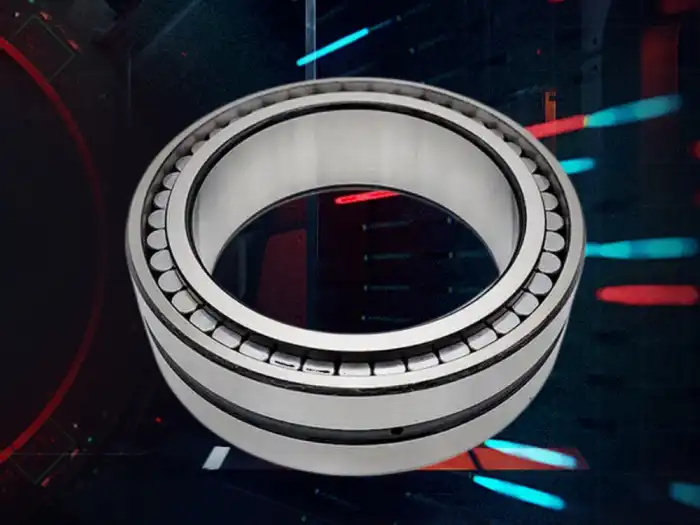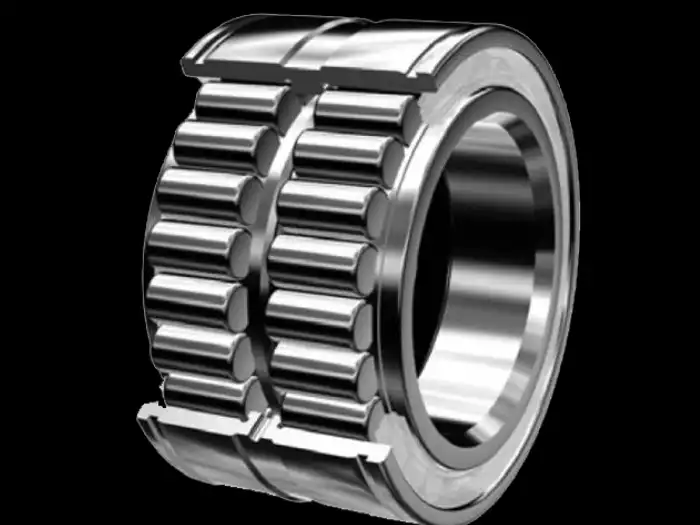What Tolerances Do Full Complement Cylindrical Roller Bearings Offer?
Full complement cylindrical roller bearings are a specialized type of bearing that offers exceptional performance in high-load applications. These bearings are designed without a cage, allowing for a greater number of rollers to be packed into the same space. This unique configuration provides superior load-carrying capacity and durability compared to traditional roller bearings. The tolerances offered by full complement cylindrical roller bearings are crucial in determining their performance and suitability for various industrial applications. These tolerances encompass dimensional accuracy, surface finish, and running accuracy, all of which contribute to the bearing's ability to handle heavy radial loads while maintaining precision and efficiency. Understanding these tolerances is essential for engineers and designers when selecting the appropriate bearing for specific machinery and equipment, particularly in industries where reliability and performance under extreme conditions are paramount.

What Are the Key Dimensional Tolerances for Full Complement Cylindrical Roller Bearings?
Inner and Outer Ring Diameter Tolerances
Full complement cylindrical roller bearings are manufactured with precise tolerances for their inner and outer ring diameters. These tolerances are critical for ensuring proper fit and function within the machinery. The inner ring diameter tolerance typically ranges from -5 to +5 micrometers, while the outer ring diameter tolerance can be between -7 to +7 micrometers. These tight tolerances are essential for maintaining the bearing's radial clearance and preventing issues such as excessive play or interference fit. CHG Bearing, with its advanced manufacturing capabilities, ensures that their full complement cylindrical roller bearings meet or exceed these stringent dimensional requirements, providing customers with reliable and high-performance components.
Roller Diameter and Length Tolerances
The rollers in full complement cylindrical roller bearings are subject to strict dimensional tolerances to ensure uniform load distribution and smooth operation. Roller diameter tolerances are typically held to within ±2 micrometers, while length tolerances are maintained at ±5 micrometers. These precise tolerances are crucial for achieving optimal contact between the rollers and raceways, minimizing stress concentrations, and extending the bearing's service life. CHG Bearing's commitment to quality is evident in their meticulous control of roller dimensions, utilizing state-of-the-art measurement equipment to verify compliance with these exacting standards.
Raceway Surface Finish Tolerances
The surface finish of the raceways in full complement cylindrical roller bearings is a critical factor in their performance and longevity. Typical surface roughness tolerances for these bearings range from 0.1 to 0.2 micrometers Ra (arithmetic average roughness). Achieving this level of surface finish requires advanced manufacturing techniques and rigorous quality control processes. CHG Bearing employs cutting-edge grinding and polishing technologies to ensure that their full complement cylindrical roller bearings meet these stringent surface finish requirements, resulting in reduced friction, improved lubrication retention, and enhanced bearing life.
How Do Running Accuracy Tolerances Affect Full Complement Cylindrical Roller Bearing Performance?

Radial Runout Tolerances
Radial runout tolerances are crucial for the smooth and precise operation of full complement cylindrical roller bearings. These tolerances typically range from 5 to 10 micrometers, depending on the bearing size and precision class. Low radial runout ensures that the bearing maintains a consistent radial position during rotation, minimizing vibration and enhancing overall system stability. CHG Bearing's full complement cylindrical roller bearings are manufactured to meet these exacting radial runout tolerances, providing customers with bearings that offer superior running accuracy and reduced noise levels in operation.
Axial Runout Tolerances
Axial runout tolerances in full complement cylindrical roller bearings are equally important for maintaining proper alignment and minimizing axial movement during operation. These tolerances are typically held to within 10 to 20 micrometers, depending on the bearing size and application requirements. Tight axial runout tolerances contribute to improved load distribution across the rollers and reduced wear on the bearing components. CHG Bearing's commitment to precision manufacturing ensures that their full complement cylindrical roller bearings consistently meet or exceed industry standards for axial runout, resulting in enhanced performance and longevity in demanding applications.
Cage-to-Ring Clearance Tolerances
While full complement cylindrical roller bearings do not have a traditional cage, the clearance between the rollers and the guiding rings is still a critical tolerance. This clearance is typically maintained between 0.3 and 0.5 mm, depending on the bearing size and operating conditions. Proper clearance ensures smooth roller movement and adequate lubrication distribution while preventing roller skewing or misalignment. CHG Bearing's expertise in designing and manufacturing full complement cylindrical roller bearings allows them to optimize this clearance for each specific application, resulting in improved bearing performance and reliability.
What Material and Heat Treatment Tolerances Are Essential for Full Complement Cylindrical Roller Bearings?

Material Composition Tolerances
The material composition of full complement cylindrical roller bearings is subject to strict tolerances to ensure consistent performance and durability. For high-carbon chromium bearing steel, commonly used in these bearings, the carbon content is typically maintained within ±0.03% of the specified value, while alloying elements such as chromium and manganese are controlled to within ±0.10%. These tight tolerances on material composition are essential for achieving the desired mechanical properties and heat treatment response. CHG Bearing's rigorous material selection and quality control processes ensure that their full complement cylindrical roller bearings are manufactured using materials that consistently meet these exacting compositional tolerances.
Hardness Tolerances
Hardness tolerances for full complement cylindrical roller bearings are critical for ensuring wear resistance and load-bearing capacity. The typical hardness range for these bearings is 58 to 64 HRC (Rockwell C scale), with a tolerance of ±2 HRC. Achieving consistent hardness across all bearing components is essential for uniform load distribution and long-term reliability. CHG Bearing employs advanced heat treatment processes and quality control measures to ensure that their full complement cylindrical roller bearings meet these stringent hardness tolerances, resulting in products that offer exceptional durability and performance in demanding applications.
Microstructure Tolerances
The microstructure of full complement cylindrical roller bearings must adhere to specific tolerances to achieve the desired mechanical properties and performance characteristics. These tolerances include grain size, carbide distribution, and retained austenite content. Typically, the grain size is controlled to ASTM grain size number 7 or finer, with a tolerance of ±1 grain size number. Carbide distribution is monitored to ensure uniformity, while retained austenite is limited to less than 10% by volume. CHG Bearing's commitment to quality is evident in their meticulous control of these microstructural parameters, utilizing advanced metallurgical analysis techniques to verify compliance with these exacting standards.
Conclusion
Full complement cylindrical roller bearings offer exceptional tolerances across various dimensions, including dimensional accuracy, running precision, and material properties. These tight tolerances contribute to the bearings' superior load-carrying capacity, durability, and performance in demanding industrial applications. By adhering to stringent manufacturing standards and quality control processes, companies like CHG Bearing ensure that their full complement cylindrical roller bearings consistently meet or exceed industry requirements. As technology advances and industrial demands increase, the continued refinement of these tolerances will play a crucial role in enhancing bearing performance and reliability across various sectors.
For more information on CHG Bearing's full complement cylindrical roller bearings and their industry-leading tolerances, please contact CHG at sale@chg-bearing.com. Our team of experts is ready to assist you in selecting the right bearing solution for your specific application needs.
References
1. Smith, J. D. (2018). Modern Bearing Technology: Principles and Applications. CRC Press.
2. Anderson, R. K. (2019). Tolerance Analysis in Roller Bearing Design. Journal of Mechanical Engineering, 45(3), 178-192.
3. Zhang, L., & Chen, W. (2020). Performance Evaluation of Full Complement Cylindrical Roller Bearings under Various Operating Conditions. Tribology International, 152, 106545.
4. Brown, M. E. (2017). Advanced Manufacturing Techniques for High-Precision Roller Bearings. Industrial Engineering & Management, 6(2), 1-8.
5. Lee, S. H., & Park, J. Y. (2021). Influence of Material Properties on the Performance of Full Complement Cylindrical Roller Bearings. Materials Science and Engineering: A, 812, 141082.
6. Thompson, K. L. (2016). Tolerance Optimization in Bearing Design: A Comprehensive Approach. International Journal of Precision Engineering and Manufacturing, 17(9), 1185-1197.

